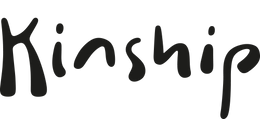Fashion Revolution 2021 – Rights, Relationships & Revolution
Meet Sudah, an artisan at Sop Moei Arts in Thailand. She is one of the weavers responsible for the intricate Naga fabric used in Kinship’s cushions.
Originally from Sop Lan village, Sudah and her husband Phong moved their family to Chiang Mai to pursue a better-quality education for their two children.
Working for Sop Moei gives Sudah and Phong an opportunity to keep Karen fabric and basket weaving traditions alive while earning a sustainable income. Their goal is to build a home for their family.
As part of Fashion Revolution Week’s #IMadeYourFabric campaign, we say thank-you to artisans like Sudah who work at the foundation level of the textile supply chain.
On April 19-25, Kinship Collective joins the world in marking Fashion Revolution Week 2021 – the latest chapter in an annual campaign calling for transformation within the fashion and textile industries.
The Naga Cushion, woven by Sudah
Created to commemorate the 2013 Rana Plaza tragedy in Dhaka, Bangladesh that claimed the lives of 1,138 people, Fashion Revolution is a time to pause and reflect on our progress towards a more just system, and the challenges that still lie ahead.
Eight years after the garment factory collapse captured the world’s attention and cast a spotlight on supply chain inequalities, the fight for a fairer, more sustainable fashion industry continues. At a moment in history when connection has never been more important, this year’s campaign focuses on relationships and the interwovenness of human rights and the rights of nature.
We take a closer look at Fashion Revolution’s message and Kinship Collective’s commitment to honouring the social bonds that make our brand different.
What is Fashion Revolution?

Fashion Revolution is a week-long global campaign to ‘amplify unheard voices across the fashion supply chain’. Organisers call on textile producers, brands, retailers, unions, makers and everyday consumers to raise their voices in unison.
Shared across social media, the catch cry ‘Who made my clothes?’ is a simple yet powerful demand for greater transparency from brands and suppliers. The response issued by workers throughout the supply chain, ‘I made your clothes’, gives those who are so often silenced a chance to be heard.
From advocacy springs innovation. Last year, Fashion Revolution’s impact extended to 92 countries around the globe, engaging consumers, sparking policy change, and continuing to inspire a cultural shift.
In 2021, the campaign takes on a special focus by examining the interdependencies between human rights and the health of our planet. Inequality reinforces the exploitation of vulnerable workers and the destruction of the environment for fashion’s sake. Healthier relationships – between brands and suppliers, consumers and labels, us and our clothes and textiles, and with each other – has the potential to re-shape the industry from the ground up.
This year’s Fashion Revolution Week calls for cooperation instead of competition between brands, for producers and retailers to come together to work towards sustainable solutions. It demands a unified approach to improving social and environmental rights throughout the supply chain.
The campaign is underpinned by a simple message: “We are more powerful voices for change when we all work together.”
Collaboration & Kinship

Our artisans at Weaver's Project in Cambodia
As a brand founded on cooperation, we pride ourselves on the meaningful and long-term relationships we build with our artisan partners in Asia and Sweden. The proof is in our name – Kinship Collective represents a communion, a sharing, and a holistic approach to business that’s mutually beneficial.
Originality and authenticity are at the heart of our designs, and we have a deep respect for the creative energy and physical labour that goes into each product. Human rights are at the core of our business model. We believe that every woman brings value to our brand and deserves to be fairly compensated for her work and acknowledged for her skill.
Knowing that everyone needs a healthy working and living environment to flourish, we encourage all our artisan partners to use natural dyes and natural fibres wherever possible.
In an industry known for its complex supply chains, we seek simplicity by linking customers directly with artisans, eliminating the middleman and amplifying our financial and social impact.
A vital connection in our collaboration chain are the Changemakers, our boots on the ground and direct link to our artisan partners. By donating 10% of our revenue towards projects in education, care and entrepreneurship, we ensure we’re making an impact where it’s most needed in the areas that are most beneficial to women, their children, and their communities.
Crafting community
Every item in the Kinship collection is designed to spark conversation and foster a greater value for artisanal skills and cultural heritage. Our community of makers extends across Laos, Cambodia, Nepal and Thailand, with each group bringing their own traditions to the mix.

Mao, one of our Artisans at Weaver's Project, Cambodia
At the Weavers Project in rural Cambodia, women craft Khmer textiles to earn a sustainable wage and keep the country’s cotton-weaving heritage alive. In a country where garment factories dominate the textile industry, Weavers Project cuts against the grain:
“We are weaving communities in rural Cambodia, and you are connecting directly to us. This allows us to bring the human connection that is very rare through conventional supply chain models.”
We value the human face behind every stitch and believe in the power of relationships as a force for good. We stand with and proudly support Fashion Revolution’s mission for a fairer textile supply chain – this year and every year.

Mao is the weaver behind our Pech cushions
Get involved
Get involved with the Fashion Revolution 2021 campaign by accessing the free resources available here.
Learn more about Kinship’s social impact here, and shop our collection of for-purpose textiles here.




